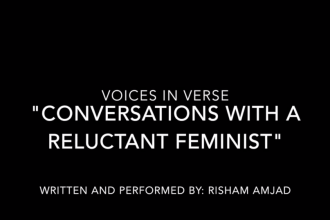India is experiencing a burst of incredible new poetry in English. Yet its poets have few opportunities to share, improve, and publish their work, and readers have few opportunities to discover them. Imagine a country with 1.2 billion people, 300 million of whom are literate in English — yet without a single Creative Writing MFA program. New poets in India lack pathways to learn from established writers or to receive editing and mentorship to make their work shine. Big publishers stay away from poetry, while some of the most respected small presses even ask poets to pay to publish their own books. Published poets see their books go out of print quickly and never reach their natural audiences within India, let alone readers outside India.
The (Great) Indian Poetry Collective is the coming together of poets who believe words can transform lives. Founded in 2013 in Bangalore, India, as a not-for-profit press, by Minal Hajratwala, Ellen Kombiyil and Shikha Malaviya (poets with roots in both India and the United States), The (Great) Indian Poetry Collective is on a mission to bring Indian poetry to the world. Through high-quality publishing, workshops, and the power of digital media, they are building a much-needed infrastructure for poetry from India and the Indian diaspora. The Collective specializes in new poetry (first and second books), discovering and bringing forth new voices that are innovative and diverse.
Since 2013, The (Great) Indian Poetry Collective has released four titles, ‘Geography of Tongues’ by Shikha Malaviya (2013), ‘Bountiful Instructions for Enlightenment’ by Minal Hajratwala (2014), ‘Histories of the Future Perfect’ by Ellen Kombiyil (2015), and ‘The Trouble with Humpadori’ by Vidhu Aggarwal, (2016). The Collective also recently launched inPoetry: The (Great) Indian Poetry App, currently available at the GooglePlay store. In addition to the three founding members, The Collective also includes Rohan Chhetri (winner of the Emerging Poets Prize, 2015), Vidhu Aggarwal (Editor’s Choice Award, 2015), Jennifer Robertson (Editor’s Choice Award, 2015) as well as ten poetry fellows.
Here, in a candid roundtable conversation, The (Great) Indian Poetry Collective reveals how passion and collaboration can elevate an art form and empower a community.
When you say poetry collective, you mean…
Ellen: And what a response the Collective has seen. I have to give a shout out to the wonderful, engaged audiences of Bangalore who attend poetry events and truly listen and ask questions. We couldn’t have asked for a better birthplace for the Collective.
Minal: It’s been really beautiful to see readers, poets, and donors from all over the world step up and join us!
Shikha: Yes, it’s been an amazing experience so far! We’ve been embraced by a very eager community of poetry lovers and sincere learners. For me, personally, this poetry collective means a synergy of art, craft and community. It also means a haven for poets who are developing their craft and for those whose poems need a home. We could have chosen to just focus on publishing, but on reflecting on how we three founders were lucky enough to have writing classes and mentorship readily available to us in the U.S., we wanted to bring these opportunities to India. The (Great) Indian Poetry Collective is about nurturing new poetic voices from India and the diaspora while paying homage to and learning from the voices that came before us. It’s about community beyond borders.
How is a collective different from a traditional publisher?
Minal: I have published my work via a large commercial publisher, a small press, and now through this Collective, and I’ve worked in a lot of different roles in various parts of the world of writing. Each way of publishing has advantages and disadvantages. There is very little room for poetry in the big presses; almost none for unknown poets. Most poetry in the world is published through tiny presses. In a traditional press, the poet sends in the words, and the publisher does all the rest: cover, design, printing, selling, etc. In a Collective enterprise, the poet learns about and is engaged in every part of the process. What size is the book? What’s the font? Who’s the cover artist? Where is the launch event? Who is the audience and how will we reach them? Each of our poets gets to make those decisions for themselves, which is an amazing level of empowerment and ensures an aesthetic continuity with the work itself.
The Collective way might seem like more work, but since authors are increasingly the main marketers of our own books even in ‘traditional’ publishing models, it’s actually not very different, workload wise — but the poet gets a lot more control.
Shikha: Being part of a poetry collective means more participation and more creative control. Which means more responsibility and more work. With the right people, this can produce wonderful results! In our latest book, ‘The Trouble with Humpadori’, Vidhu Aggarwal not only designed her own book cover (which is gorgeous!), but also made her own book trailer. In a traditional publishing environment, this would not have been possible.
I would also like to dispel the myth that collective publishing is the same as self-publishing or vanity publishing. Each of our manuscripts goes through a very rigorous process in terms of selection, content, editing and design. Last year we selected three manuscripts, two of which were editor’s choice and one which was chosen by a judge who is not part of the collective. All of these manuscripts were read blind. We were thrilled to receive over ninety manuscripts! Each incoming poet is assigned a mentor who works with them on their manuscript. All new members of the collective assist in the production of their book, but in no way are they compelled to pay for any of these services. Our goal is to have The (Great) Indian Poetry Collective be a self-sustaining non-profit press, much in the same vein as Alice James Books.





